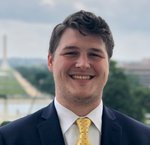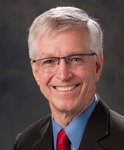



One of two seats in the newly-redrawn Washington State 18th Legislative District features three members of the Republican Party who participated in a forum put on by the League of Women Voters of Clark County in June.
Brad Benton, Greg Cheney and John Ley answered questions about their plans if they are elected to the Washington State House of Representatives. Democrat Duncan Camacho, a registered nurse at PeaceHealth Southwest Medical Center, had a scheduling conflict and was unable to participate in the forum.
The candidates are vying to replace the current 18th Legislative District Position 2 seatholder Larry Hoff, a Republican, who decided not to run for another term.
Ley, a former airline pilot, writer for ClarkCountyToday.com and state legislative candidate, said he wants to push back on state-level control ranging from education to the COVID-19 pandemic.
“The people are frustrated and tired of 850-day emergency declarations coming from the governor. They would like to regain control over their lives,” Ley said.
Cheney, an attorney and Battle Ground Planning Commission member, said he wants to ensure the district is “a vibrant, livable community that we can all appreciate and enjoy, long into the future.”
Benton said his experience as the son of former Washington State Sen. Don Benton showed him the good and bad things that could happen in Olympia.
“I knew from a young age that I wanted to help people and I thought being in the state Legislature was the best way to help the people of my community,” Benton said.
Crime and
campaign finance
In response to a question regarding a rise in property crime, Cheney favors a “carrot and stick” model that features adequate jail facilities to house those who are arrested and available resources to get those people’s lives back on track.
“If we don’t treat the problems that the individual has … they are simply going to get out of jail and repeat the same crime,” Cheney said.
Benton said the Legislature needs to make sure it isn’t getting in the way of law enforcement.
“The biggest thing that they can do is step aside, empower our law enforcement communities, fully fund law enforcement (and) make sure that cops can chase and arrest bad guys and the prosecutors can put those people away or get them the resources that they need,” Benton said.
Ley said the state needs to draw a harder stance on drug-related crimes.
“Sadly, in our state we have hamstrung our law enforcement so that they can’t chase the bad guys that are making our communities and our neighborhoods unsafe,” Ley said.
Regarding campaign finance reform, Benton said he would not support the use of public funds for candidates in elections.
“I don’t see any reason to change (campaign finance) or overregulate,” Benton said.
Ley said the state has “very vibrant” laws on campaign finance and public disclosure. He said he wouldn’t oppose increasing the limits on fundraising.
“Money has been equated to being free speech, so why would we want to restrict the ability of people to use their personal funds for free speech?” Ley said.
Cheney said he supports a “robust and transparent system” for campaign finance, saying he believes Washington has done a better job on that than Oregon.
Cheney pointed out “integrity in office,” which includes actually living in the district where a person is running for office. His opponent, Ley, has received a residency challenge that is currently under review by the Clark County Auditor’s Office over claims he does not actually live at the address he listed when he filed to run.
Transportation
All three candidates are in agreement that replacement of the Interstate 5 bridge over the Columbia River should not include light rail or tolls.
Ley has been widely critical of the current effort, the Interstate Bridge Replacement Program, calling it “nothing more than a resurrection of the Columbia River Crossing” during the forum.
Like the previous, failed project, Ley took aim at the recommendation of using light rail as the mass transit option, which he said is too expensive for the capacity it would provide. He also pushed back on the use of tolling to fund the project.
Cheney said it isn’t realistic for residents of the district who drive to Vancouver to use light rail for their commute into Portland. He said tolling would only further impact Washingtonians working in Oregon who already pay the latter state’s income tax.
“We have to make sure that people can make money while going to those jobs and tolling doesn’t do that,” Cheney said.
Benton’s experiences using light rail while working in Portland pitted him against extending it into Washington.
“It’s not safe,” Benton said. “All that’s going to be is a conduit and a way to extend Portland’s homelessness problem into Vancouver, when we have our own homelessness problem we need to deal with.”
For financing transportation infrastructure in the state, Cheney said Washington needs to find a way to “capture that cost” of electric vehicles. Owners of the vehicles don’t pay the gas tax, but still use Washington roads.
“I don’t like the idea of government tracking where you go or what you’re doing with your car. I think that’s overkill, but I do think there is a way we have to find equity in terms of being able to build out roads,” Cheney said.
Both Cheney and Benton believe the state’s goal to phase out new gas-powered cars in 2030 is unrealistic. Benton said the number of transportation projects bonded out would make a state gas tax suspension infeasible given the need to pay off bonds.
“I would (favor) moving back toward a ‘if you don’t have the money, you can’t spend it’ policy,” Benton said.
Ley said the gas tax is an efficient way to fund state transportation, while a large percentage of tolling revenue goes to the cost of collection. He favors using sales tax from electric vehicles for transportation funding as a way to capture lost revenues.
Climate change, redistricting issues
The candidates’ response on environmental issues and climate change was more varied.
“I don’t think we need to make any steps in the climate change arena, at least not any steps that jeopardize our businesses in the state of Washington,” Benton said. “I want this planet to be here for my kids, just like all of us do, but we have to be realistic about the science, and we can’t jeopardize our economic future for what’s been basically turning into propaganda by both sides.”
Ley said the state’s current environment is far cleaner compared to other parts of the world.
“China and India are going to overwhelm any efforts we do,” Ley said.
Cheney favors biological carbon sequestration to improve the environment. That could be realized by putting plants in public rights of way that would then take greenhouse gas out of the atmosphere. He also touched on the health of the state’s streams and supports culvert improvements which could benefit fish populations.
Ley said the latest redistricting was hampered by state mandates, affecting Census data collection, and in turn, the redistricting process. He wants to see a greater focus on maintaining communities with similar economic interests in the same district.
Cheney again brought up district residencies, asking whether or not the Legislature should look into time limits for individuals moving into a district.
Benton said since the state redistricting commission has partisan members, the process would remain flawed.
“As far as a solution to that, I don’t know yet, but I know that if I am chosen and sent to Olympia I will be part of the solution and not part of the problem,” Benton said.
Housing costs, taxes
Lower taxes and fees alongside looser building restrictions are general ideas the candidates have to tackle affordable housing.
“The biggest way you can reduce the cost of housing is to bring more buildable land into the inventory,” Cheney said.
Modifying the state’s Growth Management Act could meet that end.
Benton said the biggest problem on housing affordability is property tax. He said the Legislature could reduce the increase in property tax local governments can impose annually.
He also said reducing developer fees could allow new homes to be built at prices residents can afford.
“(Developers) pass those expenses on to the eventual homeowner,” Benton said.
Ley agreed with Benton in regard to property taxes’ effect on housing costs. He said a solution would include an exemption imposed at the state level on a portion of a property’s assessed value for taxes. He also is in favor of relaxing building restrictions.
All three candidates are in favor of some sort of tax relief.
“It’s time to quit asking us, the taxpayer, for more money, and for our state government to start spending it more responsibly,” Benton said.
If elected, Benton said he “would pick through budgets with a fine-toothed comb” in an effort to eventually lower taxes.
Ley said the state had a $15 billion surplus in the latest budget cycle, but the Legislature ended up using it all.
“They did not return a penny of that money to the people who were paying it,” Ley said.
Alongside his property tax plan, Ley also favors cuts on sales tax and the business and occupation tax.
Referencing his experience as an attorney for businesses, Cheney said the business and occupation tax is a big concern. Having the tax based on gross revenues means it can hit businesses that are just starting up hard.
“You’re still being taxed, even though you, the business owner, haven’t taken home a single cent. That has got to change,” Cheney said.
Following the Aug. 2 primary deadline, the two candidates with the most votes out of Benton, Cheney, Ley and Camacho will face off in the November general election.